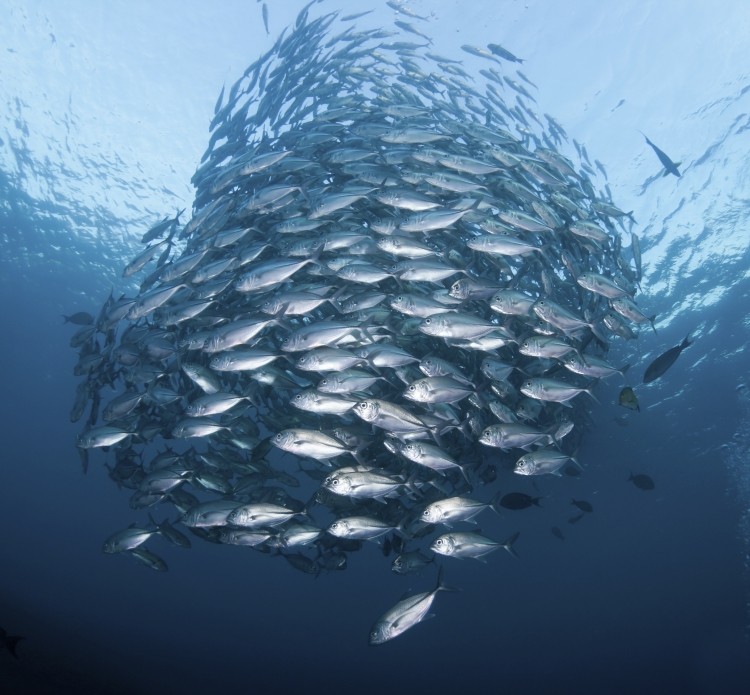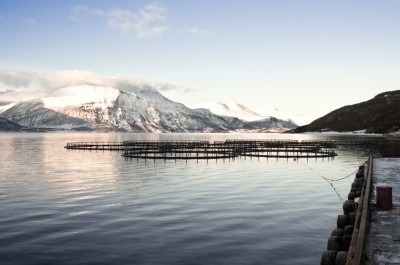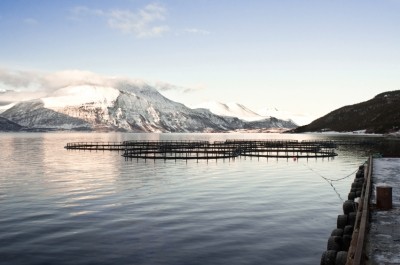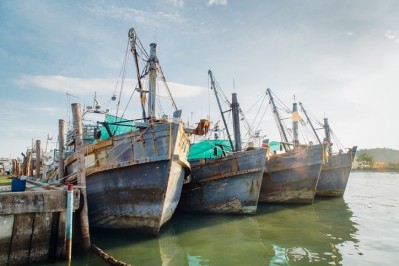Bid to revamp responsible sourcing standard to make fishmeal production slavery free

The members of IFFO's RS Governing Board met last week to debate how its global standard, which now only involves the certification of fishmeal and fish oil factories, could be extended so that the treatment of employees on raw material supply vessels could be included in an audit.
The move to widen the IFFO RS standard comes amid media exposes, particularly a report in the Guardian last June, alleging slavery in Thailand’s shrimp sector, with workers on boats supplying fisheries reporting horrific conditions, including 20-hour shifts, regular beatings, torture and execution-style killings.
Andy Jackson, technical director at the marine ingredients organization, told FeedNavigator today:
“A few months ago, we were at a loss as to how we could achieve such an extension of the standard in a way that would be credible, measurable and affordable.
There can be anything from 400 to 500 vessels supplying raw materials to fishmeal processing plants. How do you survey the working conditions on board these supply boats?
However, after much debate, which also involved representatives of the UK’s fishing vessel auditing scheme, the RFS, we decided that a joined up approach between that standard and the IFFO one could be the answer.”
The responsible fishing scheme (RFS) is currently being updated, with new good practice guidelines being developed around such parameters as health and safety, ethics and welfare.
Vessel visibility
“We may not take in all of the criteria under the RFS standard, perhaps only the social components. What exactly a revamped standard would consist of is still under evaluation. But we are looking to see how we could recognize the essential elements of that scheme within our own.
The revised RFS standard will first be implemented in the UK before going worldwide and then we will see how applicable it is to international settings within our own IFFO RS standard.
We are aiming to get visibility all the way back to the boats in the fishmeal and fish oil supply chain on a global scale but such transformation won't happen overnight. This is a long term project,” said Jackson.
In October, the IFFO along with the Global Aquaculture Alliance, Lyons Seafoods, and retailing group, Morrisons, in a joint statement, said it was “essential that robust, comprehensive and socially responsible standards are implemented within aquaculture and its supply industries and that human rights are protected.”
The groups said they were committed to using their influence to promote the spread of good labor practices, with the prevention of trafficked or bonded labor a priority.
Retailers, both in the EU and the US, are beginning to sit up and take notice of abuses along the fishmeal feed supply chain and are increasing pressure down the line. “While we can play our part, it is really up to the market to drive change and the local authorities to enforce laws,” said Jackson.
Weak regulation
Andrew Mallison, director general of the IFFO, in a letter to the Guardian in September, said the reports from Thailand showed how “weak regulation of migrant labor in the fishing industry allowed desperate and vulnerable individuals to be exploited far from the protection of the authorities.
The private sector should continue their efforts to address these problems but will have a much greater chance of success if the elected representatives in each jurisdiction are also doing their part to deliver the objectives.
Buyers should lobby government as well as their suppliers and in turn those governments need to ensure that the resources they control on behalf of their constituents are responsibly managed for the long term.”
Jackson added that with the international spotlight trained on the Thai shrimp sector, government officials there have been more active in roundtable meetings formed as part of the IFFO’s fishery improvement programs, which are aimed at raising fishmeal and fish oil production standards towards eventual certification.
“We are no longer held at arms’ length but are increasingly seen as a solution to the problem now,” he said.
Slavery in the UK
But slavery is not unique to the South East Asian fisheries sector.
Last month, the UK’s Home Office posted findings about forced labor in the UK fishing industry on its website.
“While the vast majority of captains or skippers will be recruiting fisherman legitimately, some could find themselves targeted by unscrupulous gangmasters who may be offering a ready supply of labor at knocked down rates or getting cheap labor from ships in international waters,” said the Home Office.
The UK’s Modern Slavery Bill now enables law enforcement officers to check stateless vessels in international waters where a slavery offence is suspected.












